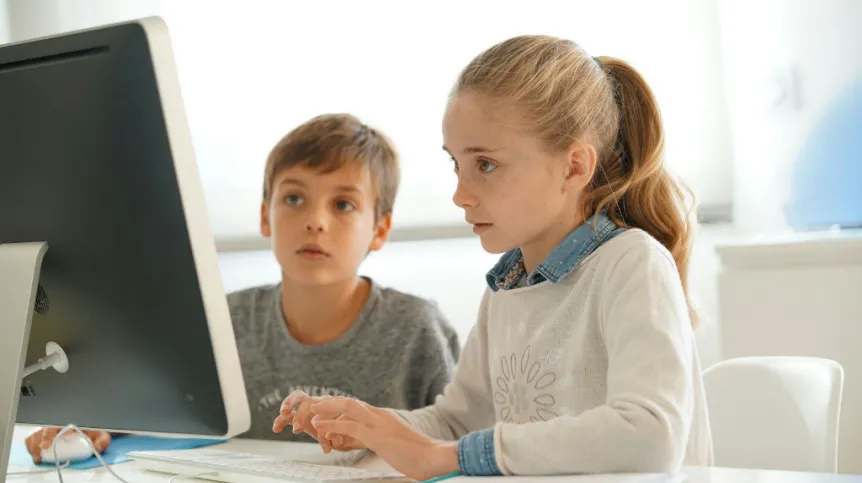
Computer action games probably do not help children with dyslexia learn to read according to a Polish study published in "Scientific Reports". This contradicts the results of previous research, according to which games improve reading skills of dyslexics.
Researchers from the Nencki Institute of Experimental Biology in Warsaw led by Prof. Anna Grabowska and Dr. Katarzyna Jednoróg have conducted a study to see if computer action games improve reading skills in children with dyslexia. This link between games and reading skills was reported by an Italian-Australian research group in 2013 and 2017.
"The previous study raises a lot of doubts: the group of surveyed children was small and - importantly - there was no control group that did not participate in the training" - says Magdalena Łuniewska from the Nencki Institute, the lead author of the Polish article.
Researchers from the Nencki Institute invited 54 dyslexic children to participate and divided them into two groups. One of these groups, under the supervision of scientists, regularly played the action game used in the earlier Italian-Australian study. The second group was assigned a "phonological" game - created especially for the experiment, based on a phonological training. The children's progress was monitored with control tests.
At first glance - as in the previous study - the results looked promising. Children in both groups exhibited increased reading correctness and speed. "After comparing the results, it turned out that there were no major differences in the skill level between the groups. Both games affected the same exact set of skills, while we expected to see some differences" - the researcher explains in an interview with PAP.
How should such results be interpreted? Polish researchers found having a control group very helpful. The children in that group did not participate in regular training in the laboratory, but they did some of the same tests as other groups. It turned out that despite the lack of formal training, they also exhibited a similar increase in the level of skills. "This calls the previous reports on the impact of games on the reading training of dyslexics into question" - Łuniewska says.
"These results also suggest that the recorded reading skills improvement is not the result of gaming itself" - she adds. It is rather related to the control tests. - "Over time, the children simply became more familiar with the test problems, which in turn translated into better test results" - explains the researcher.
It is still possible that reading training using computer games could have a different result in the case of younger children. "In both studies - both ours and the one to which we refer - the average age of participants was 10-11 years. This means that they have had at least three years of learning to read and they already have certain habits. However, we do not have data on younger children" - she notes.
"Despite all that, the results of our study indicate that the computer games used in the study have no effect on the reading skills of children with dyslexia. The suggestion of a link between games and reading skills is indeed very attractive - no wonder it has gained a lot of publicity - but it is standard methods of assisting reading education in dyslexics that have a proven effectiveness" - concludes Łuniewska.
The results of the study of the Italian-Australian research group are available at: DOI:10.1038/s41598-017-05826-8. Polish researchers published their results in an article that appeared at in early January in the journal "Scientific Reports" (DOI:10.1038/s41598-017-18878-7).
PAP - Science in Poland, Katarzyna Florencka
kflo/ ekr/ kap/
tr. RL













